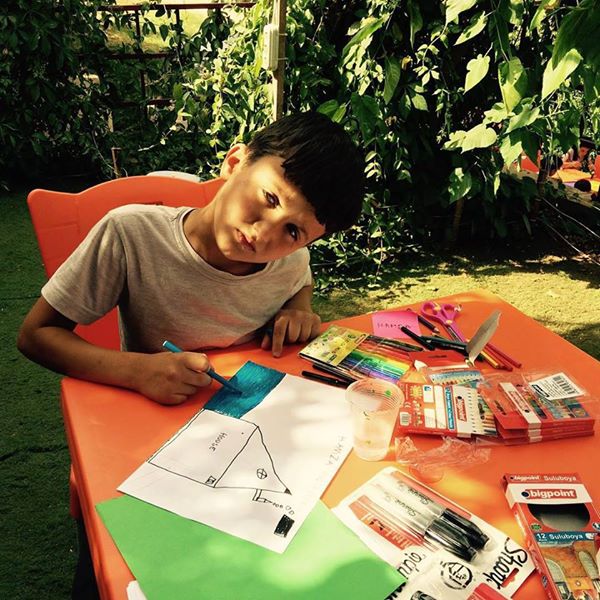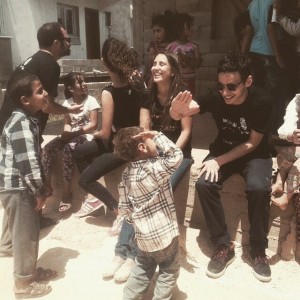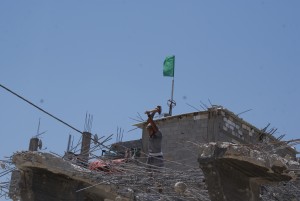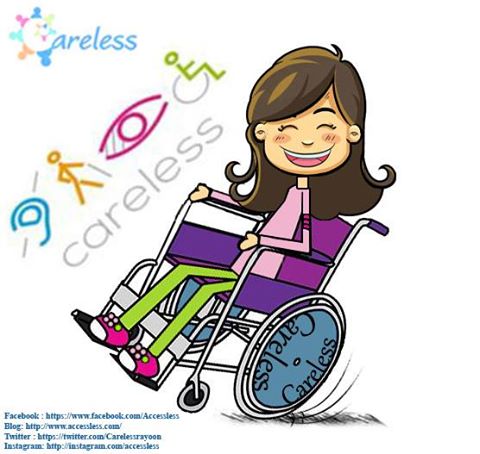Watanili: The art of helping Syrian children rediscover childhood
Through art, film and education, Watanili is a grassroots initiatives which is working to give traumatised Syrian kids a dose of normal childhood.

Wednesday 6 January 2016
There are over 4 million Syrians registered as refugees, with millions more displaced within Syria.
Watanili or ‘My Homeland' is a grassroots initiative dedicated to providing support for displaced Syrians through art therapy, educational programmes, and other community-oriented projects. It works directly with civilians within and outside Syria to empower communities to repair their social and intellectual fabric.
Watanili was launched in May 2014 by Yara Tlass, its founder and executive director. Born and raised in Damascus, Yara received her BA in international management from Lugano in Switzerland and moved to Paris to pursue an MBA. Like many Syrians, she was forced to leave her homeland due to the political situation. Yara explains that Watanili was born out of the desire and need to offer a different perspective on the conflict in Syria: “Initially, we were mainly focused on the civilian aspect of the Syrian uprising, shedding light on the human stories and pressing issues of the conflict, which we thought were not being sufficiently covered by the mainstream media.” The Watanili team did this by producing videos and by sharing photo essays on social media.
The idea of the project emerged from the urgent need to do something for Syria and Syrians. “I started looking into ideas to offer a different perspective on the conflict, one that is not just limited to Assad and ISIS or Islamist fighters,” explains Yara. “We got excited and put our everything into it. We knew a few activists and photo journalists on the ground in Syria and that is how we kicked off our first video.“
Watanili's main mission was to tell the world that there are people in Syria who want to live in peace and with dignity, but that no one was listening to their stories or providing them with any significant support. Yara and her team wanted to shed light on this and give a voice to their stories. Their mission and projects have since diverged and expanded to other initiatives, including art therapy workshops, educational programmes and community-based aid.
The team launched an online crowdfunding campaigns in order to collect funds for their projects but they also received support from generous individuals at fundraisers. Watanili's biggest supporters have been friends and family and people who advocate for democratic change in Syria. They have also received some generous support from the British Council and Hivos who match-funded Watanili's crowdfunding campaign to run cinematic events in the city of Aleppo which helped to inject an element of joy and peace in one of Syria's darkest zones.

Watanili has seen volunteers from around the world joining their missions and projects in the field in Turkey. However, the team still hopes to reach out to as many people as possible in order to maximise the project's potential and expand Watanili to benefit the largest number of Syrian children.
The team's main base is Reyhanli, a small Turkish town about 5km from the Syrian border, which has seen a very large influx of refugees. Unfortunately, the team is not ready yet to expand into other parts of Syria and/or neighbouring countries. “We would like to build up our presence and grow the support given to Syrians in the areas where we already operate, in order to ensure we have a sustainable presence before branching out into other cities and projects,” says Yara.
Watanili offers educational opportunities to displaced children who have been unable to access public schools, or those who need to catch up with what they have missed since they fled Syria. The Watanili team, as Yara stressed, cares about art “as food for the soul and believe in its therapeutic power to alleviate stress and reduce anxiety, as well as harness inspiration and creativity, fostering a space of cultural expression.”
Watanili strives to help children overcome the nightmare they have lived by rekindling their dreams. One time, after a fun-filled day of creative activities and art workshops, they asked the children to write down what they were thinking. As Yara unfolded the papers to read their answers, she recalled that she “was filled with joy and excitement”.
“A Syrian boy from Idlib had written ‘I am imagining my wedding in this hall.' This was his reaction after the fun he had had during the activities led him to actually envisage his wedding at this very young age,” recounts Yara. “At that moment, we thought we had achieved our goal – if we can foster their imagination and mindset towards a positive future, [reviving] their hopes and dreams, then that is a step in the right direction.”
Yara reiterates the positive impact that every workshop has upon the children – enabling them to smile, laugh and have fun are things that many take for granted but have become lost luxuries for Syrian children.
Last September Watanili held ‘Souq for Syria': a pop-up market inspired by the bazaars of Damascus featuring art, textiles, jewellery, toys and Arab cuisine from independent artists, designers and traders. It was held in London's Rich Mix and featured the award-winning storyteller and BAFTA-nominated performer Alia Al Zougbi and live music from the acclaimed Iraqi jazz singer Alya Marquardt and rapper El Far3i.
The Watanali team were keen to make the Souq not only representative of Syria but also the wider Middle East. It drew participants from Syria, Palestine, Libya, Iraq, and Lebanon. The funds raised from the Souq went towards the launch of ‘Makani' (my place) a Learning Centre in Reyhanli where refugee children are taught basic literacy and numeracy skills, as well as English. Makani was officially opened in November 2015.
The team have already organised several events in Dubai, France, Canada, Lebanon and Spain, including fundraisers, photo exhibitions, trivia nights, spoken word poetry and a documentary screening of Basil by Adnan Jetto. Basil was filmed during a trip to the refugee camps in Reyhanli, and it offers a glimpse into the lives of Syrian children there.
Other projects include film screenings in Syria, specifically in Aleppo, where young Syrians can enjoy a brief respite from the ongoing conflict through an underground cinema that was put together by Watanili.
Another event that was organised by Watanili last month was ‘The Psych For Syria'. However, it raised only £331 and about 50 people attended. The funds will also go towards running Makani. It takes $4,000 a month to run the centre.
Loaded are a London-based Psych band led by Henry Wickett-Padgham. Henry and his two brothers (all in the band) are very passionate about supporting Syria and contacted Yara to ask about putting on a concert in support of the charity. All three brothers, and their parents, actively support the Syria Solidarity Movement and attend their meetings and demonstrations. The concert was organisedtook place at the Old Blue Last, now owned by Vice News, and a landmark in Shoreditch nightlife.
Watanili is a project with a difference. It is run by young people for the youth and children of Syria who will ultimately influence the shaping of Syria's future generation and contribute to the reconstruction of a vibrant civil society once the guns fall silent.


